Press Coverage

The Advanced Packaging Revolution Reaches Academia
State-of-the-art 3D integration machines, currently being installed at Tel Aviv University's Nano Center, will enable Israeli companies to produce end-to-end chips without the need to travel to Germany for their integration (Aug 14, Chiportal.co.il)

Nanoscience and nanotechnology at Tel Aviv University
Driving industry and enhancing quality of life: Nanotechnology is the future of basically everything," says Prof. Tal Dvir, director of Tel Aviv University’s Jan Koum Center for Nanoscience and Nanotechnology. "It’s the future of medicine, energy, and computing. Everything is done with the small est building blocks." (May 30, The Jerusalem Post)

A New Era in Israeli Nanotechnology
Hundreds of students and dozens of researchers will soon be deployed over an extensive area of 8,000 square meters, with advanced equipment at a level unprecedented in Israel. The new building of the Nanotechnology Center at Tel Aviv University heralds a quantum leap in the field of nanotechnology in Israel and in the TAU nanotechnology activity, including close research cooperation between various disciplines and faculties, and collaboration with industry (Jan 14, Haaretz-Labels)

Renewal momentum at Tel Aviv University's Center for Nanoscience and Nanotechnology
Israel is definitely growing at Tel Aviv University: the new building that is currently being constructed for the Center for Nanoscience and Nanotechnology named after Roman Abramovich is being built according to advanced international technical standards - and is expected to serve not just the academy's researchers but also the entire Israeli industry. (May 10, The Marker)

How mRNA vaccines could target everything from cancer to the plague
Scientists have long-known that mRNA could hold the key to developing much-needed vaccines. The covid pandemic proved them right, spurring a boom in mRNA-based vaccine research that could soon upend medical prevention as we know it. (March 25, 2023 / New York Post)

Tel Aviv University develops tiny robot that can capture damaged cells
Innovative technology can transport targeted cells for analysis (March 26, 2023 / JNS)
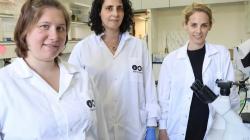
New Israeli tech could use light to control drugs
Researchers from Israel's Tel Aviv University developed a new technology that could lead to better control over the release of drugs in the human body - by using ultraviolet light ( December 13th, 2022, i24NEWS)
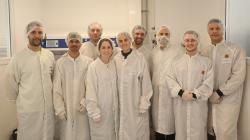
The thin electrical scale in nature - and the Israeli connection
Researchers from Tel Aviv University have discovered a two-dimensional crystal system that controls its electrical charge by sliding between atomic layers. The new system produces atomic-thick ladder steps of well-defined electric potentials and may have a multitude of applications in industry and data technology. Dr Moshe Ben Shalom told "Ynet"- "We have discovered a polarized crystal with only two atoms thickness that may assist in quantum tunneling data technologies, Using this phenomenon, we believe that we can develop innovative electronic devices, such as power reduction solutions and improved memory functions." (November 17th 2022, Ynet)
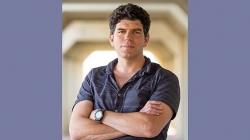
Thanks to green hydrogen: a prestigious award to a TAU researcher
Dr. Gideon Segev, along with a number of team members from Lawrence Berkeley National Laboratory, developed a solar cell for hydrogen production based on photo-electrolysis, a completely green hydrogen production method, for which he won the prestigious R&D 100 award for 2022 (September 13th 2022, Ynet)
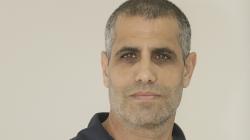
13TV's Man of the Year: Prof. Tal Dvir, Sagol Center for Regenerative Biotechnology
The TAU researcher who engineered human spinal cord implants for treating paralysis (September 21st, 2022, 13tv "Ha'aolam Haboker")

Innovative Israeli study to develop biological solutions for agriculture
Ag-biotech company PlantArcBio and TAU to collaborate on the development of RNAi-based products and environmentally friendly solutions (March 8th, 2022, Jerusalem Post)

Shape memory in hierarchical networks allow manipulation of morphing materials with micro scale resolutions
Researchers from Tel Aviv University have discovered, for the first time, a series of physical properties existing in polymer microfiber networks, among them "shape memory." These discoveries open the doors to a range of technological and biological applications, from tissue engineering to robotics. (February 24th, 2022, PHYS ORG)

The ultimate goal - to enable high-end R&D and advanced fabrication and characterization capabilities for researchers while collaborating with global industry
The Nanotechnology Center of Tel Aviv University is one of the largest research infrastructures in the country, with over 120 nanotechnology researchers and teams. The new Roman Abramovich building, which is expected to open in 2023, will allow us to expand even more on these capabilities. (TheMarker, Feb. 2022)
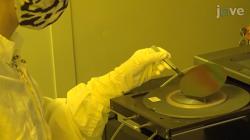
Automated Delivery of Microfabricated Targets for Intense Laser Irradiation Experiments
Intense laser radiation experiments of submicrometer scale targets are currently performed at slow shot rates. Our protocol solved this challenge by placing these targets quickly at the focus of the laser in an automated manner.
Yonatan Gershuni, Michal Elkind, Dolev Roitman, Itamar Cohen, Aviad Tsabary, Deep Sarkar, Ishay Pomerantz. (January 28th, 2021, Jove.com)
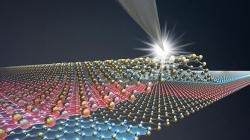
Breakthrough: The World’s Thinnest Technology - Only Two Atoms Thick
A scientific breakthrough: Researchers from Tel Aviv University have engineered the world’s tiniest technology, with a thickness of only two atoms (scitechdaily.com, July 4, 2021)
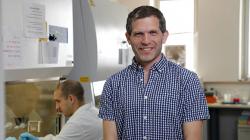
Evening Edition: New Study Tries To Return Feeling To Damaged Nerves
FOX’s Trey Yingst speaks with Dr. Ben Maoz, Biomedical Engineer at Tel Aviv University and the Maoz Laboratory, about this new technology giving hope to those that have lost limbs or feeling from an injury (FOX NEWS RADIO July 14, 2021)

Israeli team aims to restore sense of touch to those with nerve damage
The device is made out of biocompatible materials that are safe for the human body and should be able to be implanted anywhere once clinical trials are complete (The Jerusalem Post, July 12, 2021)

Innovative New Nanotechnology Will Enable “Healthy” Electric Current Production Inside the Human Body
The study was led by Prof. Ehud Gazit of the Shmunis School of Biomedicine and Cancer Research at the Wise Faculty of Life Sciences, the Department of Materials Science and Engineering at the Fleischman Faculty of Engineering, and the Center for Nanoscience and Nanotechnology, along with his lab team, Dr. Santu Bera and Dr. Wei Ji (scitechdaily.com, July 12, 2021)
,

